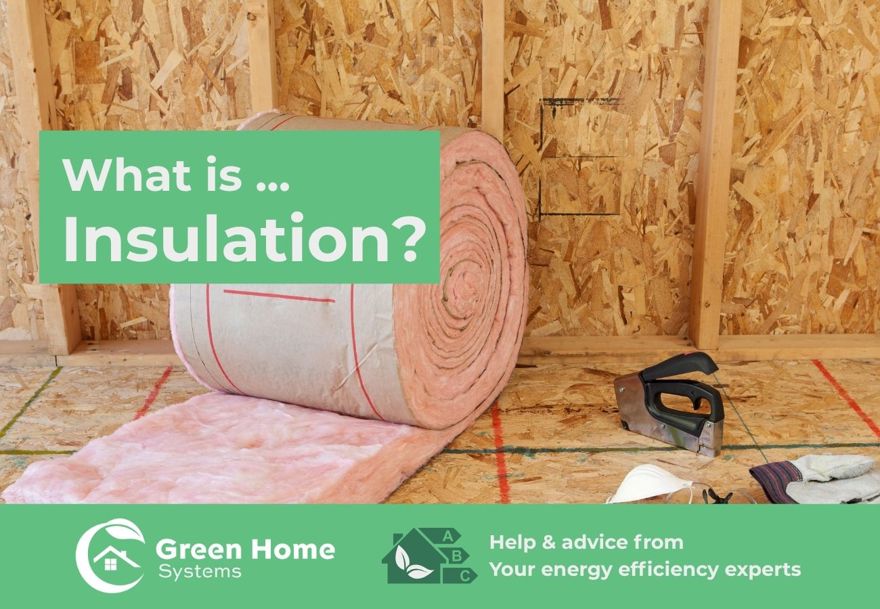You've likely heard the word "insulation" many times, especially when discussing energy efficiency or home comfort. But what exactly is insulation, and why is it so important? Our Insulation Expert, Callum Black, explains.
In simple terms, insulation is a material that resists the flow of heat. Think of it like a cosy blanket for your home. Just as a blanket keeps you warm by trapping your body heat, insulation works by creating a barrier to keep warm air inside the building and cold air out.
Why is Insulation Important for Your Home?
The benefits of proper insulation extend far beyond just keeping your home comfortable. Here's why it's a crucial component of any well-maintained property:
- Energy Efficiency: This is perhaps the most significant benefit. Without adequate insulation, heat easily escapes your home and forces your heating system to work harder, consuming more energy and leading to higher utility bills. Good insulation can significantly reduce your energy consumption, saving you money month after month.
- Improved Comfort: Imagine a home with uneven temperatures – one room is stifling hot while another has a chilly draught. Insulation helps to create a more consistent and comfortable indoor environment by minimising these temperature fluctuations. No more cold spots or overly warm areas.
- Reduced Noise: Beyond thermal benefits, many types of insulation also offer excellent acoustic and sound dampening properties. This can be a huge advantage if you live near a busy road, have noisy neighbours, or simply want to create a quieter, more peaceful indoor living space.
- Moisture Control: Some insulation materials can help to manage moisture within your home's walls and attic, reducing the risk of condensation and mould growth, which can lead to significant structural damage and health issues.
- Environmental Impact: By reducing your energy consumption, insulation helps to lower your carbon footprint. Less energy used means fewer greenhouse gas emissions, contributing to a healthier planet.
- Increased Home Value: A well-insulated home is more attractive to potential buyers. A home that is energy-efficient, comfortable, and well-maintained can potentially increase its sale value.
How Does Insulation Work?
Insulation works by trapping pockets of air, which are poor conductors of heat. This significantly slows down the transfer of heat through conduction, convection, and radiation. Different types of insulation achieve this in various ways, but the core principle remains the same: create a barrier that resists heat flow.
Where is Insulation Typically Found in a Home?
You'll find insulation in several key areas of your home:
- Attics or roof: This is often the most critical area for insulation, as a significant amount of heat can be lost or gained through the roof.
- Walls: Insulation in your exterior walls prevents heat from escaping your living spaces.
- Floors: Especially floors above unheated basements, crawl spaces, or garages.
Read more about insulation types in this article.
Types of Insulation
There are various types of insulation, each with its own characteristics and ideal applications. Some common types include:
- Fibreglass: A very common and cost-effective option, available in batts, rolls, and loose-fill.
- Mineral Wool: Similar to fibreglass but made from basalt rock and offering good fire resistance.
- Cellulose: Made from recycled paper products, treated for fire resistance, and often blown into cavities.
- Spray Foam: Applied as a liquid that expands to fill cavities, creating an airtight seal and excellent thermal performance.
- Rigid Foam Boards: Panels of foam used for continuous insulation in walls, roofs, and foundations.
Is Your Home Adequately Insulated?
Many older homes, and even some newer ones, may not have sufficient insulation by today's standards. Signs that your home might need an insulation upgrade include:
- High energy bills
- Draughty rooms
- Uneven temperatures throughout your home
- Melted snow or ice on your roof in winter
If you're unsure about your home's insulation levels, it's always a good idea to consult with a qualified professional. They can assess your current insulation and recommend the best solutions to improve your home's energy efficiency and comfort.
Investing in insulation is one of the smartest upgrades you can make to your home. It pays for itself over time through energy savings, enhances your comfort, and contributes to a healthier, more sustainable living environment.
Green Home Systems - Your Energy Efficiency Experts
Green Home Systems has been operating since 2014 and is one of Scotland’s leading energy efficiency installers. It is an accredited energy efficiency specialist holding multiple industry qualifications and provides a wide range of services including thermal insulation, solar panels and heat pumps. Over the last decade it has completed more than 20,000 retrofit projects, including 10,000 solar panel installations, and unlocked over £50M of grant funding for homeowners and communities.
If you would like more information about Green Home Systems or to speak to a member of the team contact us here.


